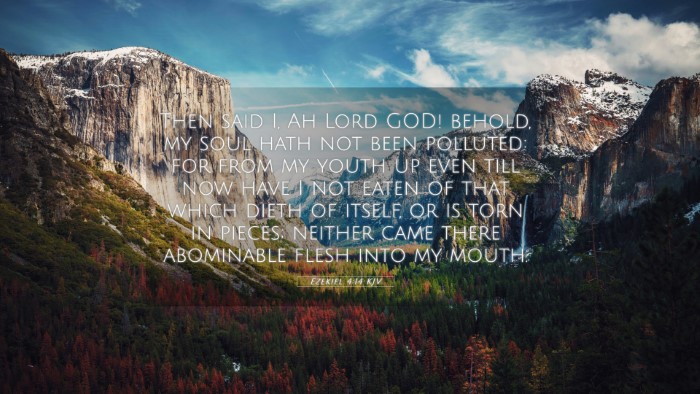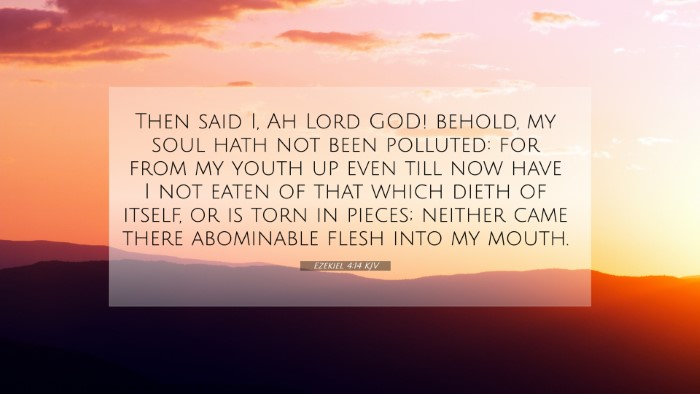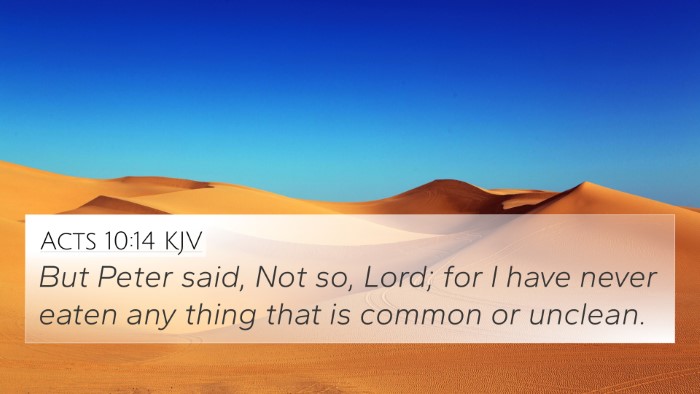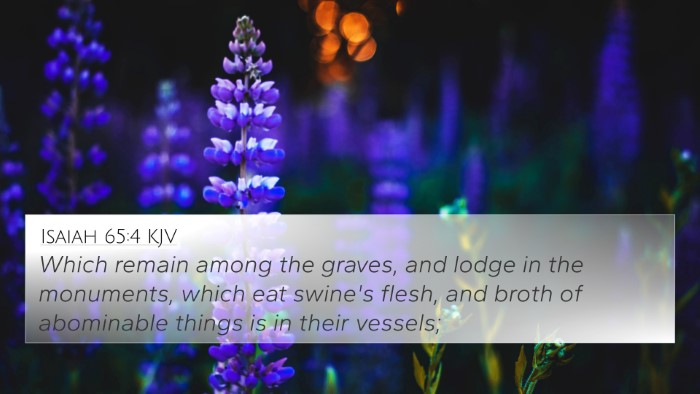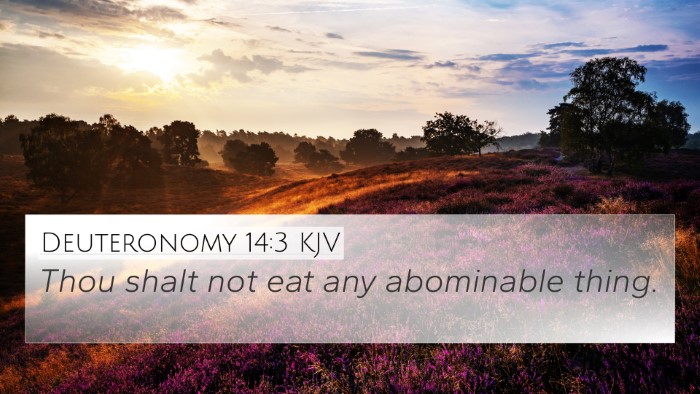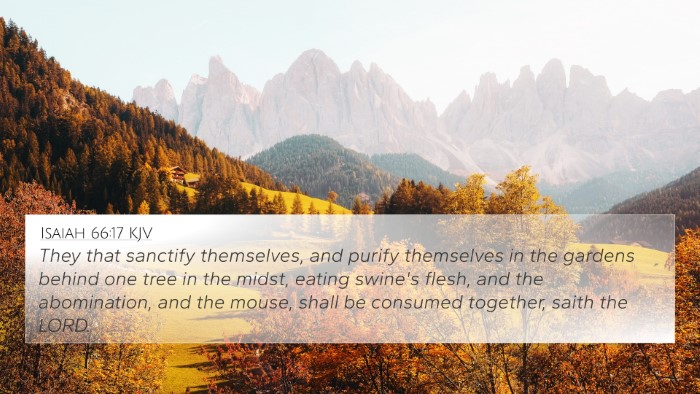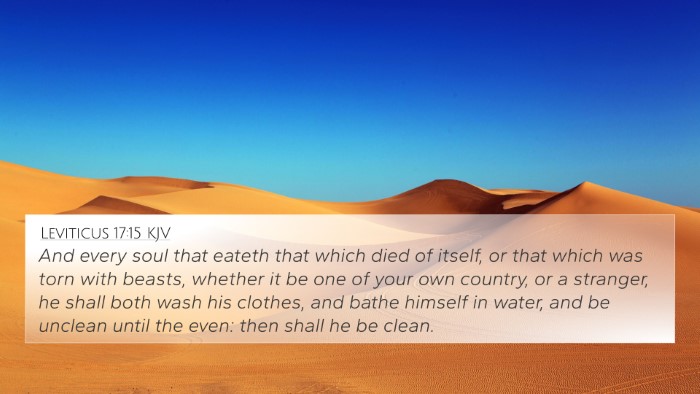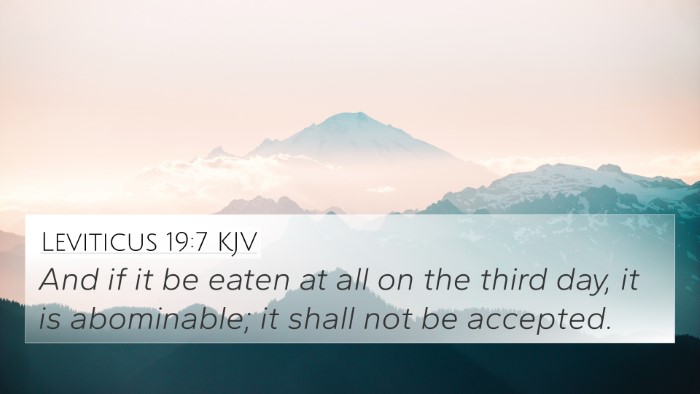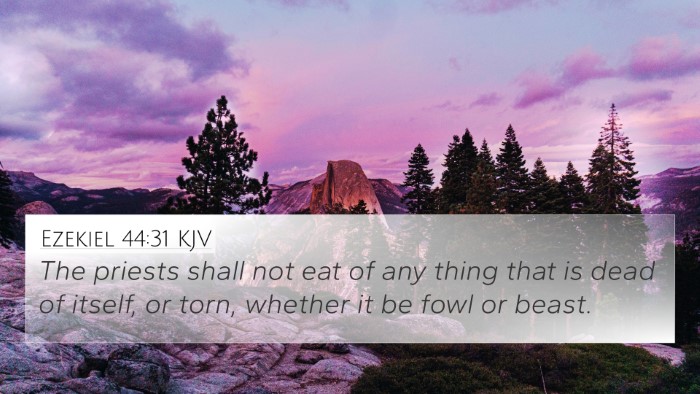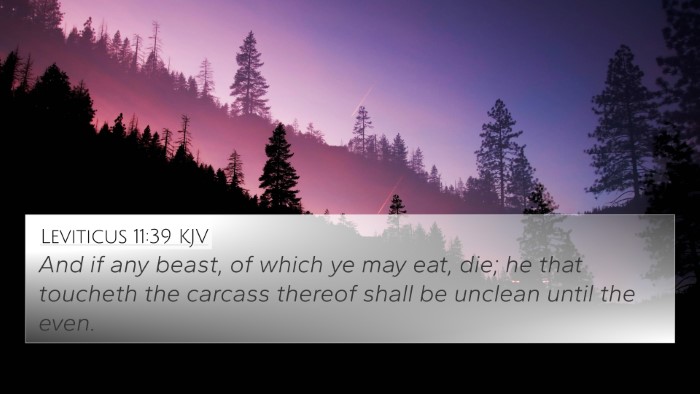Ezekiel 4:14 Interpretation and Commentary
Ezekiel 4:14 states, "Then said I, Ah Lord God! behold, my soul hath not been polluted: for from my youth up even till now have I not eaten of that which dieth of itself, or is torn in pieces; neither came there abominable flesh into my mouth." This verse reflects Ezekiel's concern for ceremonial purity and his commitment to dietary laws. Understanding this scripture requires a comprehensive analysis of its theological implications and the cultural context within which it was spoken.
Contextual Background
The Book of Ezekiel, attributed to the prophet Ezekiel, is a prophetic text that discusses God's judgments, the realities of exile, and eventual restoration. In this particular verse, Ezekiel expresses his dedication to following the laws laid out in the Torah, particularly pertaining to diet and purity. It reveals his distress at being commanded to perform acts that contradict his lifelong adherence to these laws.
Commentary Insights
Matthew Henry's Commentary explains that Ezekiel's plea highlights the importance of holiness and the struggles faced by the prophet in maintaining his purity while complying with God's commands. Henry underscores the emotional turmoil in Ezekiel, indicating that divine commands can sometimes challenge our deeply held convictions.
Albert Barnes' Notes on the Bible point out that the act of eating food deemed impure was symbolic of compromising one's spiritual integrity. Barnes notes that Ezekiel's response demonstrates a desire to remain faithful to God despite the overwhelming circumstances that surrounded him. He emphasizes that we must be cautious of what we incorporate into our lives spiritually and physically.
Adam Clarke's Commentary further elaborates on the dietary laws in Jewish tradition, explaining that Ezekiel's lifestyle was reflective of a strict adherence to what God commanded. Clarke suggests that this verse serves as a reminder of God’s standards for holiness, encouraging believers to remain steadfast in their faith amidst trials.
Theological Implications
- Holiness and Purity: This verse raises questions about what it means to be holy and how much we prioritize our spiritual integrity.
- Covenantal Faithfulness: Ezekiel’s resistance to eat impure food underscores a larger theme of covenant fidelity and God's expectations from His people.
- Symbolism of Food: The distinction between clean and unclean foods serves as a metaphor for the broader idea of spiritual nourishment and what we allow into our lives.
Cross-Referencing Biblical Texts
To deepen our understanding of Ezekiel 4:14, it is essential to consider its connections through cross-references. Here are relevant verses that relate to themes of dietary laws and purity:
- Leviticus 11:3-47: Details the clean and unclean animals, establishing the foundation of dietary restrictions.
- Deuteronomy 14:3-21: Further elaborates on clean and unclean foods, reinforcing the importance of dietary laws in maintaining spiritual purity.
- Isaiah 66:17: Speaks against those who eat swine's flesh and emphasizes the consequences of defiling God's commands.
- Matthew 15:11: Jesus teaches that what goes into the mouth does not defile a person, challenging traditional notions of purity.
- Romans 14:14: Paul discusses the concept of clean and unclean foods, illustrating the shift in understanding dietary laws in the New Testament context.
- 1 Corinthians 10:31: Encourages believers to do everything for the glory of God, including their dietary practices.
- 1 Peter 1:15-16: Calls believers to be holy as God is holy, linking back to the significance of purity in the believer's life.
Connections Between Bible Verses
The connections between Ezekiel 4:14 and other scriptures illustrate a thematic framework regarding holiness, dietary laws, and spiritual integrity. This verse prompts believers to reflect on the relationships between Old Testament laws and New Testament teachings. The repeated emphasis on purity can serve as a guiding principle for living a life that honors God.
Using Bible Cross-References Effectively
When studying scripture, utilizing tools for Bible cross-referencing can enhance your understanding of the texts. Here are some methods:
- Bible Concordance: Use a concordance to find verses related to specific themes, helping to draw connections across different scriptures.
- Bible Cross-Reference Guide: These guides can provide systematic pairings of related verses, illustrating their thematic unity.
- Cross-Reference Bible Study: Engage in studies that focus on understanding themes that connect the Old and New Testaments.
- Inter-Biblical Dialogue: Explore how the New Testament writers interpreted and referenced Old Testament scripture.
Conclusion
Ezekiel 4:14 is a profound reminder of the importance of maintaining spiritual purity amid life's challenges. By examining this verse alongside others, we can see a broader narrative that emphasizes holiness, the significance of adhering to God's laws, and the transformative nature of faith. Utilizing cross-referencing methods will deepen understanding and enhance personal and collective Bible study efforts.

